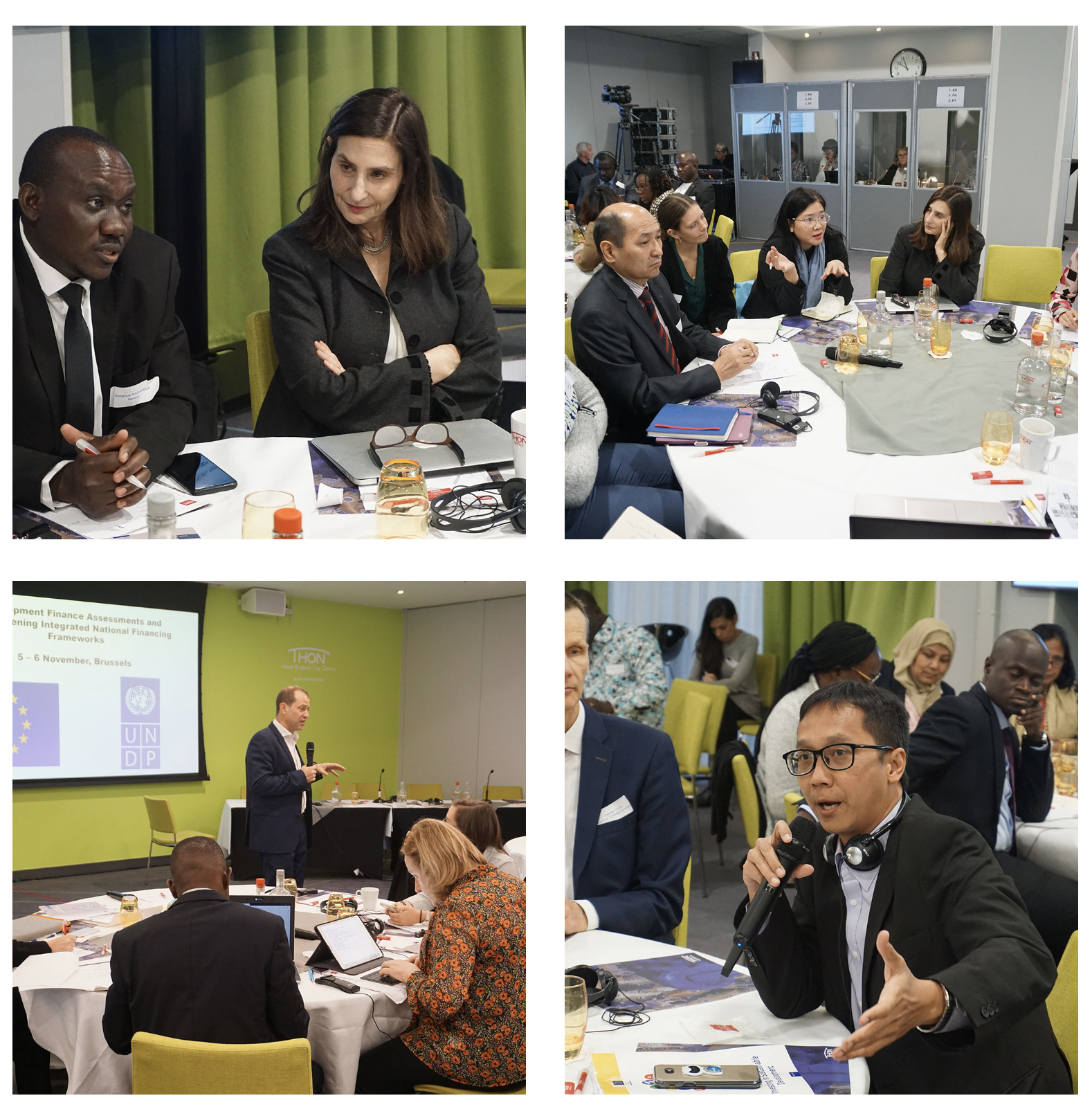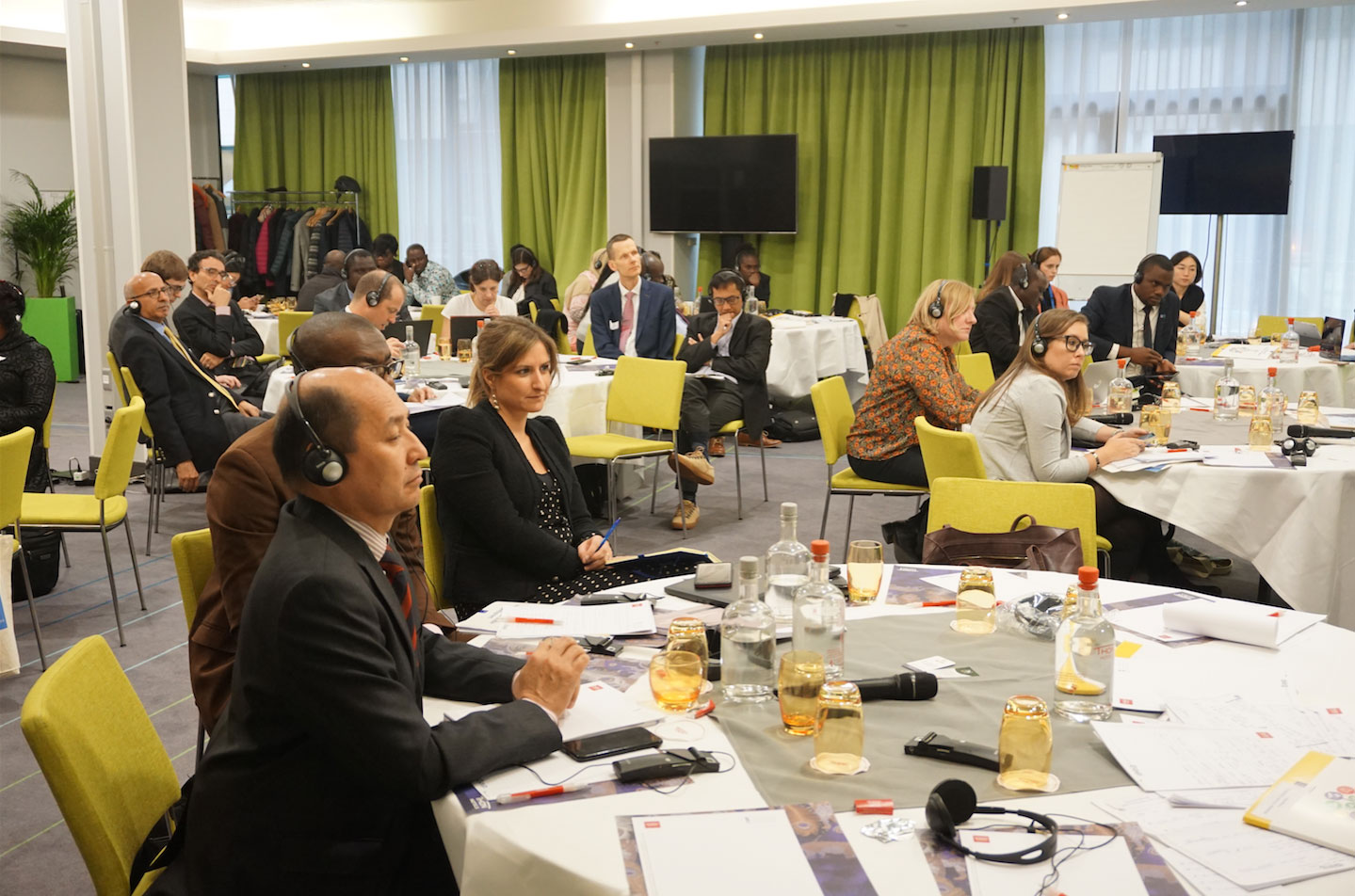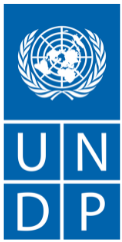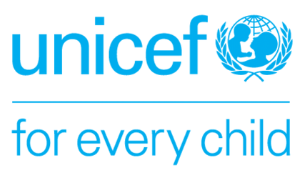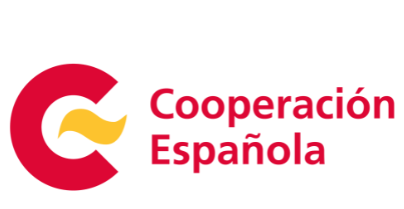The European Union and theUnited Nations Development Programme held a peer learning workshop in BrusselsNovember 5–6, 2019, which gathered 58 representatives from 18 countries (Africa:Benin, Burkina Faso, Cameroon, Ghana, Liberia, Mozambique, Namibia, Nigeria,Rwanda, South Africa and Uganda. Asia-Pacific: Bangladesh, Indonesia,Kyrgyzstan, the Solomon Islands, Timor-Leste and Vietnam.), as well as from theInternational Monetary Fund and the World Bank. The objectives of the workshopwere to enable development and finance officials to learn from each other aboutdevelopment finance assessments (DFAs), as well as about steps taken in establishingintegrated national financing frameworks (INFFs) for delivering on theirnational development priorities and the Sustainable Development Goals (SDGs).
Governments are leading theway in implementing the Addis Ababa Action Agenda, which provides a globalframework for financing the 2030 Agenda, with countries committed to adoptingINFFs that support nationally owned sustainable development strategies.
Many lessons have beenlearned and best practices established in countries implementing DFAs or undertakingother institutional and policy reforms. The workshop served as an opportunityfor peer learning and brought to light new areas to explore with partners, asparticipant countries presented their experiences and challenges in INFF- and DFA-relatedcomponents and processes.
Workshop participants discussed methodology and shared experiences
During the two-dayworkshop, DFAs were discussed as a valuable tool in the inception phase of anINFF, drawing together data, various assessment and diagnostics, and promotingdialogue around INFF roadmaps. Participants also shared a number of innovationsaround financing strategies, costing and domestic resource mobilisation, aswell as on aligning national budgets and private capital with the SDGs. Additionally,the United Nations Departmentof Economic and Social Affairs presented methodological guidance carried out under the auspices of theInter-agency Task Force on Financing for Development, and the InternationalMonetary Fund shared information on the various tools it can offer to countrieswithin the framework of an INFF.
As a next step, a number ofgovernments committed to designing INFF roadmaps and expressed a demand forfurther support, in terms of both methodological guidance and technical supportat the country level. Government representatives welcomed further opportunitiesfor peer learning on INFFs.
Formal INFF processes havesince been launched in Cabo Verde, Kyrgyzstan and Indonesia, with many morecountries taking national processes forward in the second half of 2020.
Government representatives presented their strategies on mobilising resources
In general, the workshop identified the advantages INFFs can bring tocountries’ efforts in achieving the 2030 Agenda and their national developmentplans. Several countries emphasised the importance of comprehensive analyticssuch as DFAs, and of linking to public finance instruments such as medium-termexpenditure frameworks on the road to an INFF. Participants noted a need todraw different areas of analysis together and to link with established systemsin order to operationalise an INFF. Bringing together and coordinatingdifferent stakeholders in a long-term exercise is a key element of an INFF.
Assessments and diagnostics
DFAs are part of the inception phase in the process of operationalisingan INFF. They bring together evidence and analysis on what exists, what reformsare underway and what steps can be taken to strengthen the building blocks ofan INFF. Under the leadership of a government oversight team and through aprocess of financing dialogues, DFAs build consensus on priorities and shape anINFF roadmap which outlines steps to be taken to bring together a financingstrategy, adapt governance and coordination structures and monitoringframeworks, and identify further needed assessment and diagnostics.
More than 40 countries to date have completed a DFA or are in theprocess of doing so; another 30–40 countries will embark on the process in thesecond half of 2020. Timor-Leste used its DFA in the context of a global reform process that will align itsnational development plan (2011–2030) to the SDGs and aims to implement acomprehensive transformation of public finance (revenue mobilisation, budgetingand planning).
Data collection, benchmarking and stakeholder coordination were keyelements in Vietnam’s a successful DFA exercise.
Lessons learned on the costing of SDGs from several countries – including Bangladesh, Benin, Indonesia, Kyrgyzstan, Nigeria and South Africa – show that considerable financial efforts arerequired to achieve goals in education, health, roads, electricity and otherinfrastructures; private sector partnership, increased domestic revenues andimproved efficiency are critical in this regard.
Financing strategies
Several countries presented initiatives in the area of mobilising public resources.
The Solomon Islands have developed an INFF that ties together thepolicies governing each type of public and private finance with long-term nationaldevelopment objectives and provides a strategic framework for financingreforms.
Ghana has developed a baseline report that identifies financing gaps and willset up a dashboard to increase transparency in SDG financing. In reporting onits financing gap.
Indonesia described the establishment of an innovative financing instrument, theGreen Sukkuk. This Sharia-compliant financing instrument provides finance forrenewable energy and environmental projects, among others.
Nigeria announced its intention to raise its value-added tax (VAT) from 5 percent to 7.5 per cent; this change became effective in January 2020.
Liberia is focusing its taxation reform on so-called ‘discount sectors’ wherethe ratio of sector tax to gross domestic product (GDP) is significantly belowthe sector contribution to GDP.
Mozambique has focused on improving the business environment for private sectorfinance, particularly for the banking sector.
Vietnam reported on its 20-year-old public-private partnership program, whichhas resulted in some 300 investments in transportation and electricity.
Uganda’s need for private finance is compelling: government spendingrepresents only 20 per cent of GDP and the DFA pointed out a need to focus onblended finance, which will increase private sector engagement.
The Government of Rwanda presented a comprehensive overview of measures aimed at the private sector;these included an enhanced regulatory environment, a guarantee fund for smalland medium-sized enterprises, a master plan to develop capital markets and astudy to establish blended finance instruments.
These examples of initiatives can benefit from a broader INFF,perspective – for instance, in terms of bringing more coherence acrossfinancing policies, considering trade-offs and synergies between financingpolicies and strategically choosing one financing option over another.
